|
Love God, and love your neighbor as yourself. No long list of rules. No pages upon pages to memorize, prayers to recite or tasks to complete. Love God, love your neighbor--it is so simple.
One of the worst massacres and violation of love of God and neighbor happened in Rwanda in 1994. If you have seen the movie Hotel Rwanda, it tells this story about ethnic cleansing. The Belgiums had ruled over this African nation for decades, and they set into place some of the things that would lead to this massacre. They arbitrarily divided the Rwandans up into Hutus and Tutsis, based on slight differences in skin color and other physical characteristics. In 1990, when Billy Joel was singing We Didn't Start the Fire, Rwanda was in the midst of a Civil War between Hutus and Tutsis. But the moderate Hutu president of Rwanda negotiated a peace treaty which included power sharing between the groups. Radical Hutus warned the President that they would kill him if he signed this agreement, and they did. On a Thursday night in April, the president's plane was shot down--it was only later leaned that this was by the radical Hutu rebels. And that was the signal that would set off plans for one of the worst ethnic cleanings ever, where some 600,000 to a million Tutsis were killed by the Hutus. Now the thing that is so disturbing about this, besides the act itself, is that these were not communists or fascists or secularists. This was an overwhelmingly Christian nation. Where was their devotion? What happened? How could they claim to be Christians, and then systematically go about killing their neighbors? This week I was invited down by one of our church members to the Pentagon to the chaplain's luncheon to hear Carl and Teresa Wilkens talk about their experience in Rwanda. They came to Rwanda four years prior to the genocide, serving as Christian missionaries and humanitarian workers. Carl stayed there throughout the war and wrote a book called, I'm Not Leaving. On that Thursday, the Wilkens hid in their house as gunfire went off everywhere. They were lying on the ground, telling their children that they were playing a game. Meanwhile every one of their neighbors who did not have "Hutu" on their ID card were being slaughtered with machetes. The next morning they found out from their neighbors who were Hutu that the militia and men with machetes had come during the night and had planned to kill them. They thought they were Belgiums, and believed that Belgiums had shot down the president's plane. The only thing standing between the Wilkens family and that death squad literally was their neighbors. They told them that they had lived there with them in their neighborhood for years. They knew them. They recited small acts of kindness that they had done for them, such as taking them to the hospital in the middle of the night. But of all of the things that they told the killers that night, one thing stood out. They said, "This family's children plays with our children." Their children--Mindy, Lisa, and Shaun--had spent four years laughing, playing, and building bonds together. And it was this love of neighbor--of truly loving them and living among them, and the stories of this love--that saved their lives. In his presentation, Carl Wilkins said that what led to the Rwandan genocide was the failure of love of God and neighbor. But that one instance of love on that murderous night allowed this one Christian family to live--and that allowed Carl to stay on through the genocide and save hundreds of men, women, children, and orphans. All because of small acts of love and kindness and the friendship of children playing together. What do you think that we can learn from this story about loving God and neighbor?
2 Comments
Spotify changed its logo color from one shade of green to another--and the Internet is freaking out. People hate the new green (bottom, lighter green color), someone sent out a negative tweet, and the complaint went viral.
Check out these news stories on the topic from Daily Mail and TheNEXTWeb. Some are noting that this change was done without any notice. And those in the company had been unanimous about the change, and had though that it was not a big deal. Change in a company--or church--is necessary. And change is hard to bring about without making someone upset. But this is probably a good example of needing to do a bit better in change management, and realizing that what might not be a big deal to us might be a big deal to someone else! Which color of green do you like?! In his article, One Trait that Set Apart the Earliest Christians, Michael J. Kruger points out that the sexual ethic of the early Christians was something that set these Christians apart from the culture. Note the following quoted section below:
-------------------------------------------------------------------------------------------------------------------------------------------------------- Tertullian went to great lengths to defend the legitimacy of Christianity by pointing out that Christians are generous and share their resources with all those in need. But then he said, “One in mind and soul, we do not hesitate to share our earthly goods with one another. All things are common among us but our wives” (Apol. 39). Why did he say this? Because, in the Greco-Roman world, people sometimes shared their spouses with each other. In the second-century Epistle to Diognetus, the author went out of his way to declare that Christians are normal in regard to what they wear, what they eat, and how they participate in society. However, he then said, “[Christians] share their meals, but not their sexual partners” (Diogn. 5.7). Again, this trait made Christians different. We see this dictinction play out again in the second-century Apology of Aristides. Aristides defended the legitimacy of the Christian faith to the emperor Hadrian by pointing out how Christians “do not commit adultery nor fornication” and “their men keep themselves from every unlawful union.” A final example comes from the second-century apology of Minucius Felix. In his defense to Octavius, he contrasted the sexual ethic of the pagan world with that of Christians: Among the Persians, a promiscuous association between sons and mothers is allowed. Marriages with sisters are legitimate among the Egyptians and in Athens. Your records and your tragedies, which you both read and hear with pleasure, glory in incests: thus also you worship incestuous gods, who have intercourse with mothers, with daughters, with sisters. With reason, therefore, is incest frequently detected among you, and is continually permitted. Miserable men, you may even, without knowing it, rush into what is unlawful: since you scatter your lusts promiscuously, since you everywhere beget children, since you frequently expose even those who are born at home to the mercy of others, it is inevitable that you must come back to your own children, and stray to your own offspring. Thus you continue the story of incest, even although you have no consciousness of your crime. But we maintain our modesty not in appearance, but in our heart we gladly abide by the bond of a single marriage; in the desire of procreating, we know either one wife, or none at all. This sampling of texts from the second century demonstrates that one of the main ways that Christians stood out from their surrounding culture was their distinctive sexual behavior. Of course, this doesn’t mean Christians were perfect in this regard. No doubt, many Christians committed sexual sins. But Christianity as a whole was still committed to striving towards the sexual ethic laid out in Scripture–and the world took notice. -------------------------------------------------------------------------------------------------------------------------------------------------------- I know that there are numerous Christians who are tremendously bothered by the change in laws regarding marriage and sexuality in the US. And certainly, this reflects a troubling moving away from Judeo-Christian ethics in our culture. However, it may be that with these changes in laws, Christian may stand out much more--hopefully in a positive way for what we stand for, more than a negative what we stand against. How do these quotations from early Christianity affect your view of what is happening in our culture in regards to morality? How should we respond to the changing morality that we see and face today? Why does God allow us to go through trials and suffering? Here is a poem called, "And God Said If . . ." that helps explain this. It is anonymous.
If you never felt pain, Then how would you know that I’m a Healer? If you never went through difficulty, How would you know that I’m a Deliverer? If you never had a trial, How could you call yourself an over comer? If you never felt sadness, How would you know that I’m a Comforter? If you never made a mistake, How would you know that I’m forgiving? If you never were in trouble, How would you know that I will come to your rescue? If you never were broken, Then how would you know that I can make you whole? If you never had a problem, How would you know that I can solve them? If you never had any suffering, Then how would you know what I went through? If you never went through the fire, Then how would you become pure? If I gave you all things, How would you appreciate them? If I never corrected you, How would you know that I love you? If you had all power, Then how would you learn to depend on me? If your life was perfect, Then what would you need Me for? Which of the above impacted you? Dr. William Leslie went as a missionary in 1912 to a remote part of the Congo. There he shared Christ for 17 years, but felt as though he had little impact. He had a dispute with tribal leaders, and they asked him to leave and to not come back. He left a defeated man, thinking that he was a failure.
Fast forward one hundred years to the shocking events of 2010. Mark Ellis writes, "A team led by Eric Ramsey with Tom Cox World Ministries made a shocking and sensational discovery. They found a network of reproducing churches hidden like glittering diamonds in the dense jungle across the Kwilu River from Vanga, where Dr. Leslie was stationed." Ramsey reports, "When we got in there, we found a network of reproducing churches throughout the jungle,” Ramsey reports. 'Each village had its own gospel choir, although they wouldn’t call it that,' he notes. ;They wrote their own songs and would have sing-offs from village to village.'" In each village that Ramsey and his team visited, they found a church. And there was even a thousand set stone cathedral! This just shows that God can take our "failures" and make incredible things come out of them. And is that not the essence of the cross? Praise God!
Here is a great animated video that well explains the theme of holiness and traces this concept and its development throughout the Bible. God's holiness goes beyond just moral purity, and encompasses his uniqueness and his goodness. The theme of holiness in Isaiah, Ezekiel, Jesus, and the book of Revelation is well brought out here. A great clip!
In Zechariah 3:1-3, Satan, the accuser, is standing beside Joshua, the very human high priest who is sinful and clothed in filthy robes. He is ready to accuse Joshua for his sins, when the Lord intervenes and says,
“The Lord rebuke you, Satan! The Lord, who has chosen Jerusalem, rebuke you! Is not this man a burning stick SNATCHED from the FIRE?” God planned to save and redeem Joshua--ultimately by sending Jesus (Jesus is the Greek version of the name Joshua) to be a perfect high priest and king. Satan was only there to hurl insults, shame, and accusations. He saw no value in Joshua. But God did. He deserved death, but God saved him by his grace, as a "burning stick snatched from the fire." There is a great sermon illustration for this passage (or any other passage on God's grace and redemption) from in this story - JOHN WESLEY - A BRAND PLUCKED FROM THE FIRE! Like Joshua the high priest, God would redeem Josh Wesley, not discard him, and use him for something incredible and powerful. ------------------------------------------------------------------------------------------------------------------------- "At the age of five the Wesleys’ home caught on fire in the night. All the children were removed safely from the house, but when they were counted, John was missing. A farmer from nearby spotted little John looking out of an upstairs window amid the leaping flames. Several neighbors climbed on each other’s shoulders, ‘till the man on top was able to put his arms around the boy and pull him out of the flames to safety. Only moments after he was rescued, the entire house exploded in flames. Ever after, for the rest of his life, John Wesley referred to himself 'as a brand plucked from the burning,' quoting Zechariah 3:2. . . As a young man, John and his brother Charles went to Oxford University. Influenced by the home schooling he received from his mother Susanna Wesley, John was a very serious young man. At Oxford he became the leader of a small group of serious Christian young men called the “Holy Club.” George Whitefield was also a member. But it was not until several years later that he came under the influence of Luther’s writings and experienced a true conversion. John and his brother Charles were sent by the Church of England as missionaries to Georgia, in the American colony. On board ship, while sailing to America, he saw a group of German Moravians who were unafraid of a great storm that nearly destroyed the ship. John himself was terrified by the storm. But those German Christians sang songs and had no fear. This impressed him greatly. John failed as a missionary in Georgia. During this time he realized that he had never been truly converted. As he left Georgia for a return trip to England he knew he had failed. He wrote in his Journal, “I went to America to convert the Indians; but O! who shall convert me? Who shall deliver me from this heart of unbelief? O, who will deliver me from the fear of death?” When he got back to London John Wesley met Peter Bohler, a member of the group of German Moravians who had impressed him with their braveness during that storm at sea. Peter Bohler instructed him in how to experience conversion. The counselling of Bohler and his readings from Luther’s commentary on Galatians, which emphasized justification by faith in Christ alone, prepared him for true conversion. “In the evening I went very unwillingly to a society [Bible study group] in Aldersgate, where one was reading Luther’s preface to the Epistle to the Romans. About a quarter before nine, while [Luther] was describing the change which God works in the heart though faith in Christ, I felt my heart strangely warmed. I felt I did trust in Christ, Christ alone for my salvation; and an assurance was given me that he had taken away my sins, even mine, and had saved me from the law of sin and death.” His brother Charles Wesley had been converted a few days earlier. Now they were ready to join together to lead the First Great Awakening in England, along with the great preacher George Whitefield, a friend of theirs from school days at Oxford. John Wesley began preaching the new birth in various Anglican [Episcopal] churches around the London area. Again and again, he was shut out of those churches for his strong preaching on the need of the new birth. The ministers were afraid of strong preaching on this subject, as most are today. At last there was no church that would let him preach. It was then that his long-time friend George Whitefield persuaded him to speak outdoors in the open fields. He began preaching in the fields near Bristol in 1739. The First Great Awakening in England had begun. The fire of revival would sweep across the world during his long lifetime, due to the preaching of John and Charles Wesley, George Whitefield, Howell Harris and other Methodists. During the following fifty years John Wesley rode 250,000 miles on the roads of England, Scotland and Ireland. He gave over 42,000 sermons, always preaching twice each day, and often three or four times daily, for fifty years. His tireless work changed British society and made evangelistic Christianity a life-giving force throughout the English-speaking world . . . . At the age of 86 he was still preaching to huge gatherings of people two and three times a day, seven days a week. On October 7, 1790 he preached his last outdoor sermon in a churchyard in Kent. His last sermon was given in a house in the country village of Leatherhead on February 23, 1791. His last sermon text was, “Seek ye the Lord while he may be found, call ye upon him while he is near” (Isaiah 55:6). What do you think of this story? "My buddy called and asked if I'd like to go help him pay for people's groceries. What happened next was amazing..."
This video from the JesusPainter Ministry captures people's reactions when someone pays for their groceries. They are amazed by this act of GRACIOUS GIVING--which points them to the ultimate grace of God, found in Jesus Christ. What if you did this in your community? Would this not make an impact for Christ? Wow. This is an incredible story of a couple who struggled in their MARRIAGE. He was searching for happiness and had an affair--twice. She had been seeking to find her happiness only in him, and let the problems at home cause her to miss out on God's gifts to her.
But together, they found redemption through Jesus Christ. A touching, moving story that any couple would be blessed to watch. What do you think of this story? During World War II, Adolf Hitler ordered the building of a 100,000 Watt radiotransmitter in Monte Carlo, Monaco, that he planned on using to broadcast venomous Nazi propaganda throughout the world.
It was never used. But today, the transmitter is used by TrasWorld Radio (TWR) to broadcast the gospel in numerous languages to millions of people all around the world, including Europe, Africa, and the Middle East. What Hitler intended for evil, God used for good. Is that not the essence of the gospel? Note the following from the article, "Celebrating 50 Years Broadcasting from Monaco": “Sometimes God turns the efforts of evil men into vehicles for His work in the world,” says TWR President Lauren Libby. “God provided TWR a huge voice to speak in Jesus’ name at a strategic time in history. Today, TWR’s programs from Monte Carlo still bring hope and encouragement to millions.” Here is an excerpt from prisoner in Poland whose life was eternally touched by TWR's broadcasts from Monte Carlo: "One night, after everyone else had gone to sleep, I flipped through the radio stations and came across one that would soon change my life forever! Someone was talking about the love of God that cleanses sin, forgives, heals, restores, and gives joy and peace. I became addicted to listening to Trans World Radio. One day, I bowed my head and cried out: 'Lord have mercy on me, forgive me, save me, come and renew my broken spirit, I want to be a new person and I want to live for you.' Suddenly, the gloom and fretfulness were gone. Instead, joy and peace filled my heart. I started witnessing to my fellow inmates. As many as 10 gathered around the radio to listen to TWR. For five more years in prison, God used me to witness to the broken hearts." What an amazing story, that God could "redeem" this work of man for the salvation of people's souls and the spread of the gospel. Praise God! Isn't this an amazing story! |
Search this site for a preaching topic or sermon illustration or click on the categories below!
AuthorDr. James Nored is a minister and Executive Director of Next Generation for Christ. Categories
All
Archives
January 2016
|
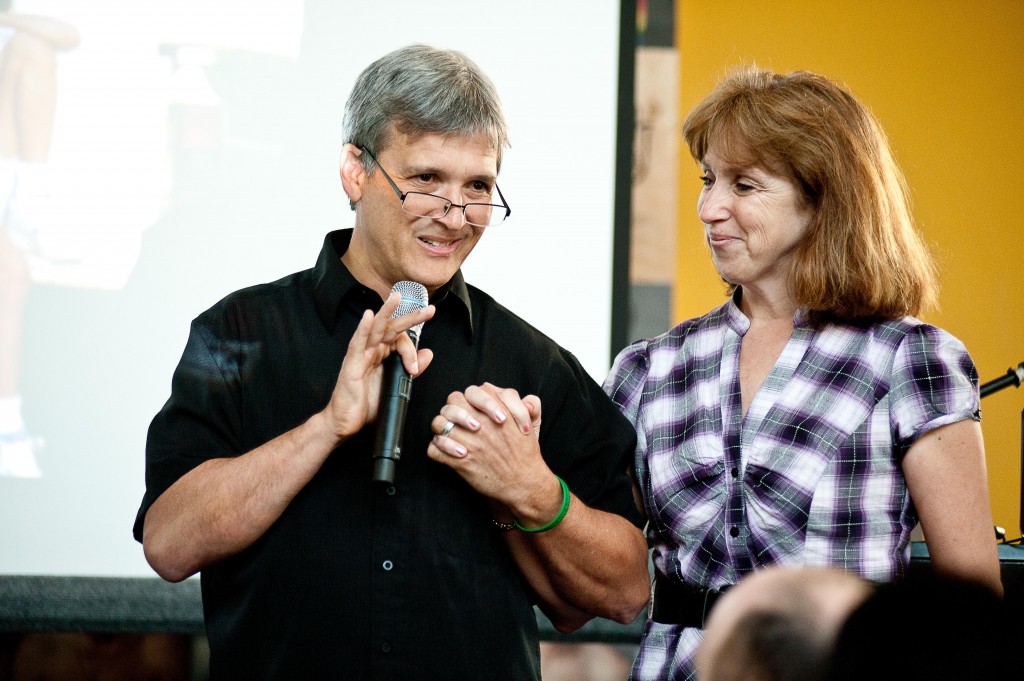


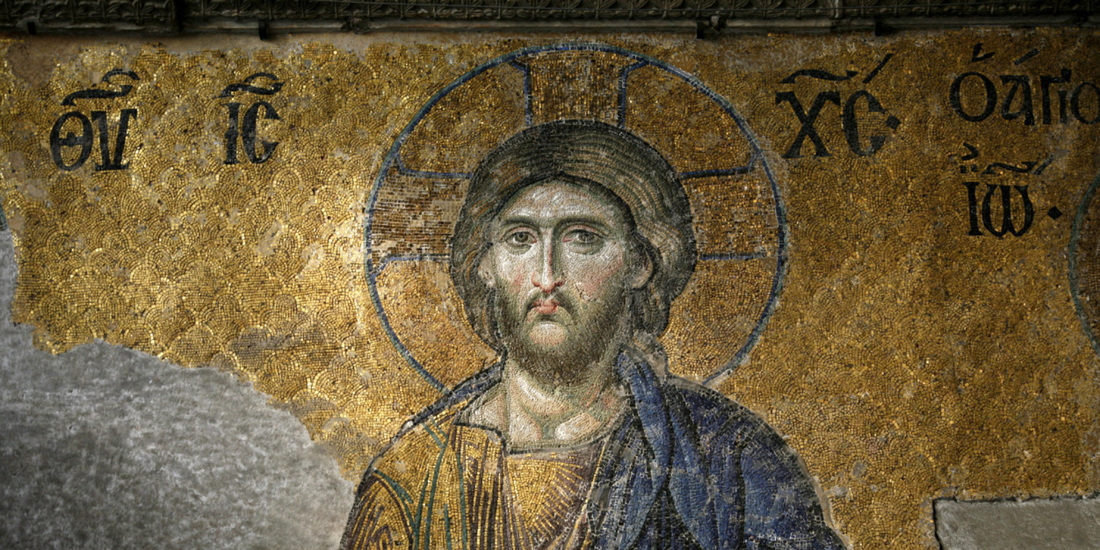
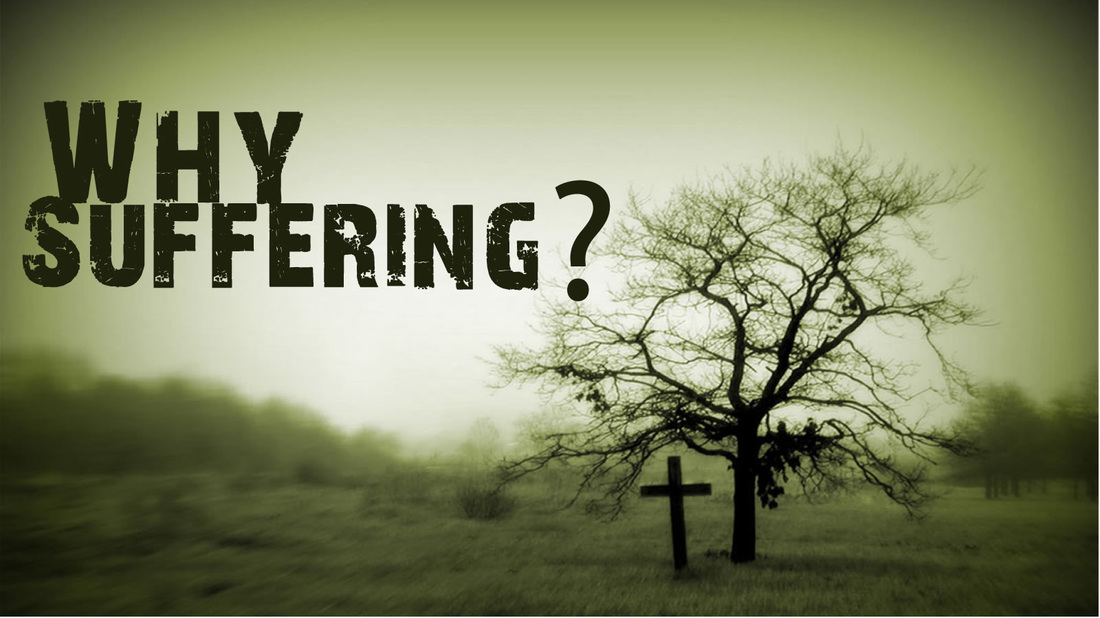
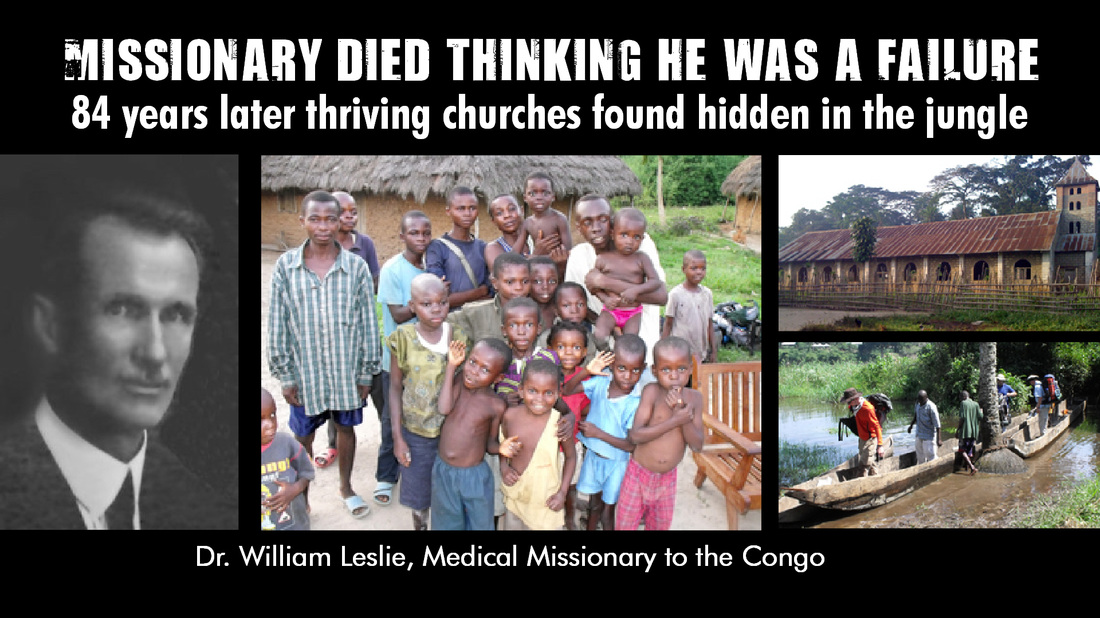
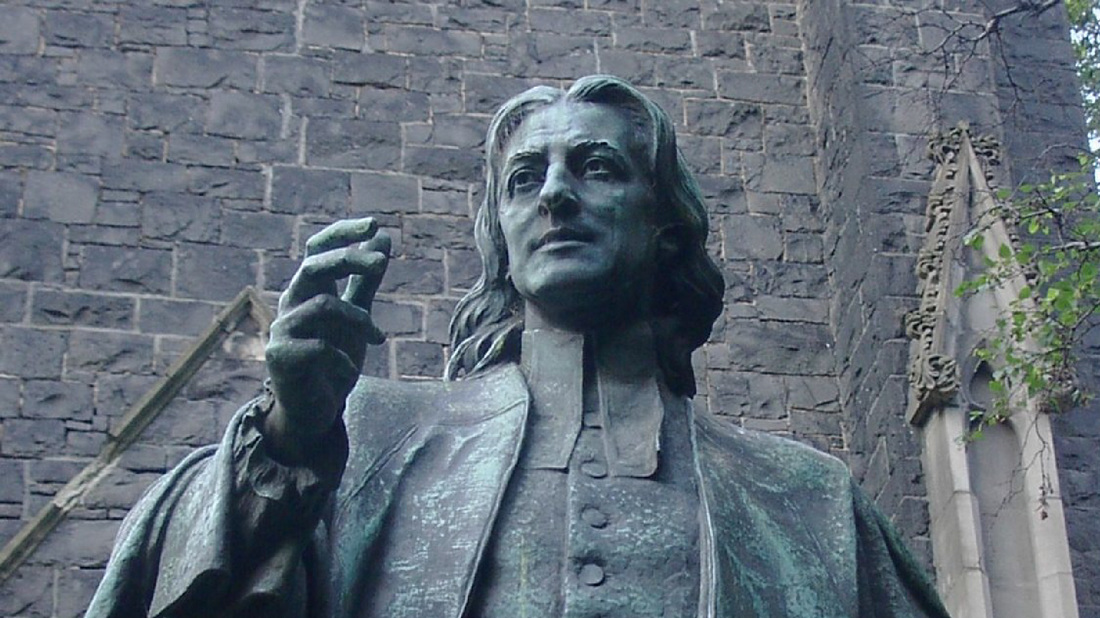

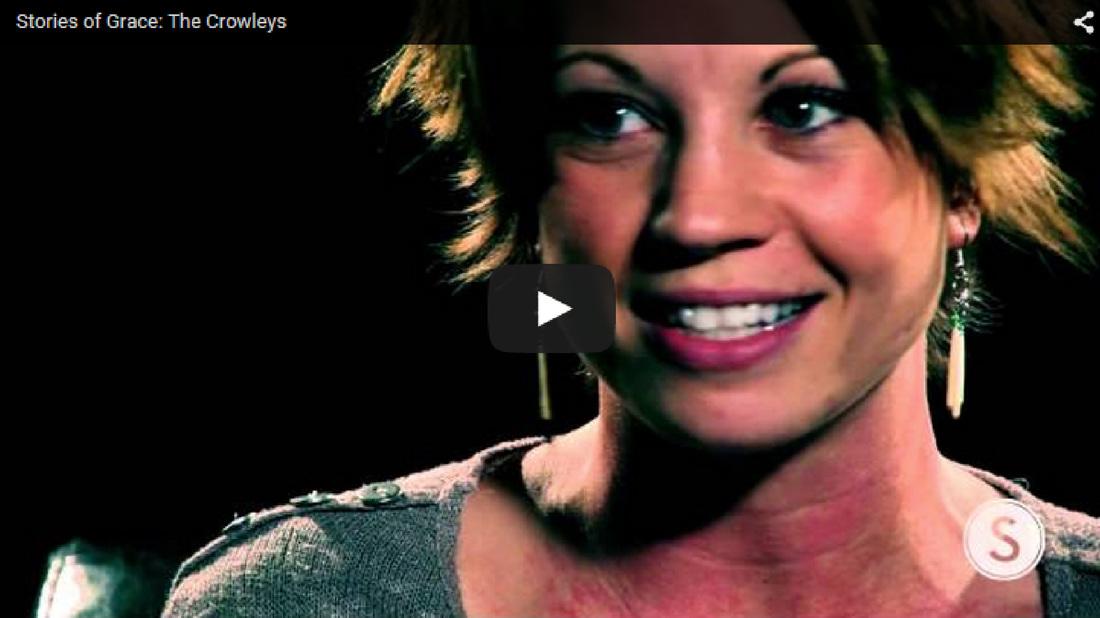

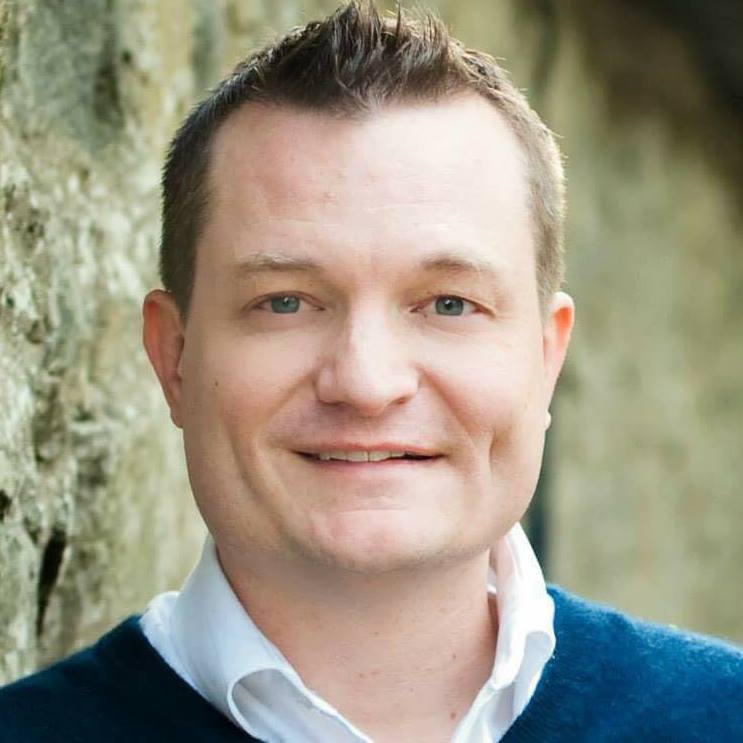
 RSS Feed
RSS Feed